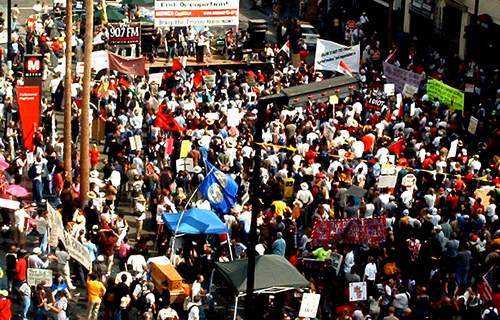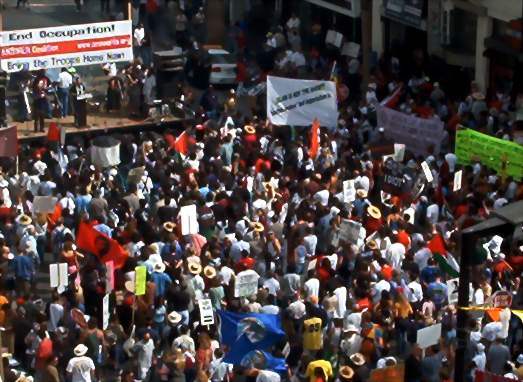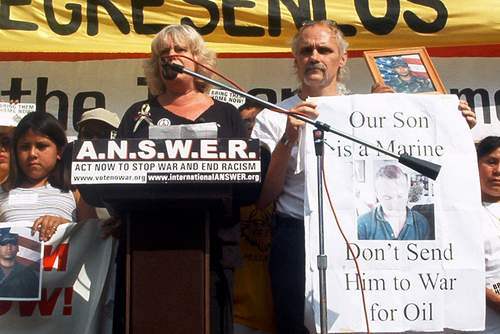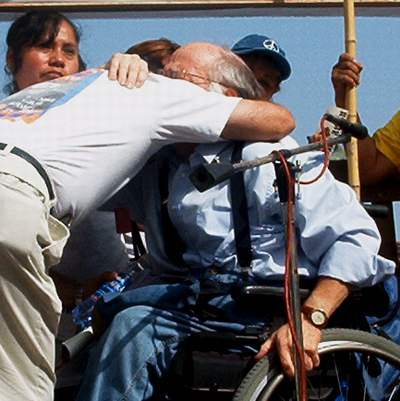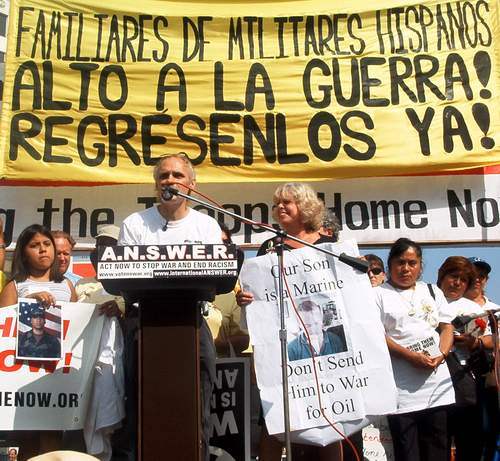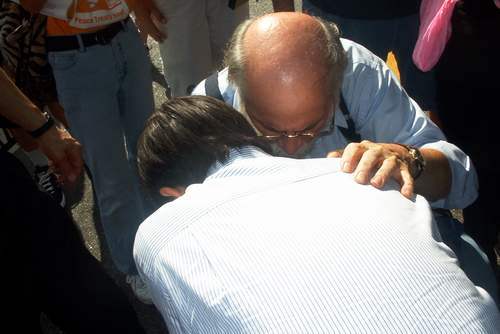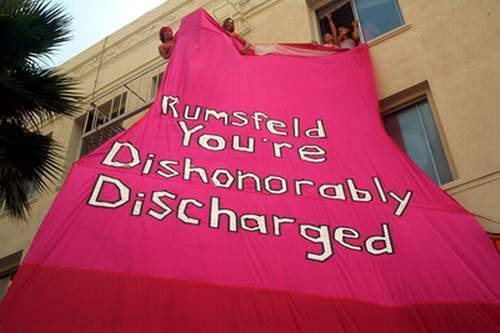| About Us | Contact Us | Calendar | Publish | RSS |
|---|
|
Features • latest news • best of news • syndication • commentary Feature Categories IMC Network:
Original Citieswww.indymedia.org africa: ambazonia canarias estrecho / madiaq kenya nigeria south africa canada: hamilton london, ontario maritimes montreal ontario ottawa quebec thunder bay vancouver victoria windsor winnipeg east asia: burma jakarta japan korea manila qc europe: abruzzo alacant andorra antwerpen armenia athens austria barcelona belarus belgium belgrade bristol brussels bulgaria calabria croatia cyprus emilia-romagna estrecho / madiaq euskal herria galiza germany grenoble hungary ireland istanbul italy la plana liege liguria lille linksunten lombardia london madrid malta marseille nantes napoli netherlands nice northern england norway oost-vlaanderen paris/Île-de-france patras piemonte poland portugal roma romania russia saint-petersburg scotland sverige switzerland thessaloniki torun toscana toulouse ukraine united kingdom valencia latin america: argentina bolivia chiapas chile chile sur cmi brasil colombia ecuador mexico peru puerto rico qollasuyu rosario santiago tijuana uruguay valparaiso venezuela venezuela oceania: adelaide aotearoa brisbane burma darwin jakarta manila melbourne perth qc sydney south asia: india mumbai united states: arizona arkansas asheville atlanta austin baltimore big muddy binghamton boston buffalo charlottesville chicago cleveland colorado columbus dc hawaii houston hudson mohawk kansas city la madison maine miami michigan milwaukee minneapolis/st. paul new hampshire new jersey new mexico new orleans north carolina north texas nyc oklahoma philadelphia pittsburgh portland richmond rochester rogue valley saint louis san diego san francisco san francisco bay area santa barbara santa cruz, ca sarasota seattle tampa bay tennessee urbana-champaign vermont western mass worcester west asia: armenia beirut israel palestine process: fbi/legal updates mailing lists process & imc docs tech volunteer projects: print radio satellite tv video regions: oceania united states topics: biotechSurviving Citieswww.indymedia.org africa: canada: quebec east asia: japan europe: athens barcelona belgium bristol brussels cyprus germany grenoble ireland istanbul lille linksunten nantes netherlands norway portugal united kingdom latin america: argentina cmi brasil rosario oceania: aotearoa united states: austin big muddy binghamton boston chicago columbus la michigan nyc portland rochester saint louis san diego san francisco bay area santa cruz, ca tennessee urbana-champaign worcester west asia: palestine process: fbi/legal updates process & imc docs projects: radio satellite tv |
printable version
- js reader version
- view hidden posts
- tags and related articles
View article without comments Thousands Say Bring the Troops Home Now"by Scott Galindez Monday, Sep. 29, 2003 at 8:51 PMsgalindez@voice4change.org Thousands marched through Hollywood today demanding an end to Occupation, and Bringing the troops home.
error
Report this post as:
Another view of the crowdby Scott Galindez Monday, Sep. 29, 2003 at 8:58 PMsgalindez@voice4change.org
error
Report this post as:
A young marcher wants her brother homeby Scott Galindez Monday, Sep. 29, 2003 at 9:03 PMsgalindez@voice4change.org
error
Report this post as:
A wife wants her husband homeby Scott Galindez Monday, Sep. 29, 2003 at 9:03 PMsgalindez@voice4change.org error
Report this post as:
A couple wanting their son homeby Scott Galindez Monday, Sep. 29, 2003 at 9:03 PMsgalindez@voice4change.org
error
Report this post as:
A father holds a picture of his son who died in Iraq...We doesn't want others to dieby Scott Galindez Monday, Sep. 29, 2003 at 9:03 PMsgalindez@voice4change.org
error
Report this post as:
Ron Kovic hugs the father who lost his son..by Scott Galindez Monday, Sep. 29, 2003 at 9:03 PMsgalindez@voice4change.org
error
Report this post as:
Mant familes of soldiers in Iraq were presentby Scott Galindez Monday, Sep. 29, 2003 at 9:03 PMsgalindez@voice4change.org
error
Report this post as:
Ron Kovic has the ear of Presidential Candidate Dennis Kucinichby Scott Galindez Monday, Sep. 29, 2003 at 9:03 PMsgalindez@voice4change.org
error
Report this post as:
The women of Code Pink served notice on Rummyby Scott Galindez Monday, Sep. 29, 2003 at 9:03 PMsgalindez@voice4change.org
error
Report this post as:
Thousands? Millions say Go USA!by Leo Oswelski Tuesday, Sep. 30, 2003 at 10:55 AMa thousan morons out of million americans disagree with President George Bush. Sound like the odds are in Bush's favor is that all you could get a thousand protestors. I guess all your other supporters were hold up in there microbuses smoking dope.
BWAHAHHAHAHAHAHA LMAO
Report this post as:
Go where?by billionino Wednesday, Oct. 01, 2003 at 2:35 PMWhere do the millions want America to go to?
Report this post as:
um...by fresca Wednesday, Oct. 01, 2003 at 2:38 PMWith all due respect, do those protesting the "occupation" actually want us to just get up and get out? (to quote Iggy)
Just like that?
Report this post as:
but of course, my dear.by KOBE SBM Thursday, Oct. 02, 2003 at 12:43 AMI mean, they saw that big ugly pink "thing" hanging on the balcony (after seeing this post all over the world on every channel, and some channels actually interrupted programming just to cover it). All the billions of anarchists worldwide actually ordered the US military to pull out RIGHT NOW.
Uh huh. With so many of them and so few of us, how can they refuse? BWAHAHAHAHAHAHA
Report this post as:
Gallup disinformation.by Mandrake Thursday, Oct. 02, 2003 at 4:08 AM1-George Gallup, chairman of the polling organisation is member of BAP (British American Project for the Successor Generation) - an elite transatlantic network supporting right-wing causes.
source>Lobster Magazine http://www.lobster-magazine.co.uk 2-RESEARCH ANALYSlS CORPORATION. One of the most important areas of cooperation between what think-tanks turn out and what becomes government and public policy are the "pollsters." It is the job of the polling-companies to mold and shape public-opinion in the way that suits the conspirators. Polls are constantly being taken by CBS-NBC-ABC, the New York Times, the Washington Post. Most of these efforts are coordinated at the National-Opinion Research-Center where, as much as it will amaze most of us, a psychological-profile was developed for the entire nation. Findings are fed into the computers of Gallup Poll and Yankelovich, Skelley and White for comparative-evaluation. Much of what we read in our newspapers or see on television has first been cleared by the polling-companies. WHAT WE SEE IS WHAT THE POLLSTERS THINK WE SHOULD SEE. This is called "public-opinion-making." The whole idea behind this bit of social-conditioning is to find out how responsive the public is to POLICY-DIRECTIVES handed down by the Committee of 300. We are called "targeted population groups" and what is measured by the pollsters is how much resistance is generated to what appears in the "Nightly News." Later, we shall learn exactly how this deceptive practice got started and who is responsible for it. It is all part of the elaborate opinion-making-process created at, Tavistock. Today our people believe they are well-informed but what they do not realize is that the opinions they believe are their own, were in fact created in the research-institutions and think-tanks of America and that none of us are free to form our own opinions, because of the information we are provided with by the media and the pollsters. source>from book, CONSPIRATORS' HIERARCHY: THE STORY OF THE COMMITTEE OF 300. by ex MI6 (British Secret Service) Dr. John Coleman. and that explain a lot about Gallup polls.
Report this post as:
The Government Sucksby krankyman Thursday, Oct. 02, 2003 at 5:24 AMYou can love your country and still be vehemently oppossed to the government. Unfortunately cheap labor conservatives only care about their pocketbooks and sucking up to those in power(to help grease their own little scams along). For all the blather we get from the cheap labor conservatives about honesty and high standards we have a dunderheaded president who lies through his teeth on a consistent basis and an administration that thinks they can do anything they want as long as they "pitch it" right,using p.r. techniques suitable only for distinguishing one bad brand of soap from another. History will show this president to be one of the worst we have ever had,with the largest deficit in history, the economy shedding jobs at a rate not seen since the great depression, the most secretive White House in history(even more secretive than Tricky Dicks,now that is something). George(little boy emperor) Bush was a crooked businessman, a governer of the most polluted state in the country, and up to 9/11 had taken more vacation time than any other president in history.
Report this post as:
krankymanby thanx Thursday, Oct. 02, 2003 at 5:39 AMBoy, you lived up to your name. Good EV! Plenty of anger topped with complete dillusionment and a touch of psychotic blather. Very nice! There was nothing even close to this yesterday from anyone, which was a bit of a letdown after some of the comments Monday. But you've gotten Wed. off to a great start. Moderately high marks all around. A conspiracy theory thrown in would have put it over the top.
Report this post as:
Bush Slaveby Mandrake Thursday, Oct. 02, 2003 at 5:43 AMYou’re in deliria. Right?
Report this post as:
You’re in deliria. Right?by location Thursday, Oct. 02, 2003 at 5:48 AMI'm in the People's Communist Hell of California. Same damn thing.
Report this post as:
starting to hit homeby builder123 Thursday, Oct. 02, 2003 at 5:58 PMthese photos reflect a new meaning ----- our friends and family have been put in harms way ----- SHAME ON BUSH!
Report this post as:
bush bullshit hard to topby Ed post by builder123 Thursday, Oct. 02, 2003 at 7:10 PMHi BA,
This article is a benchmark in the decline and defeat of the Bush administration. Judging the Iraq war as a disaster within the ideological framework of this flagship of traditional Republicanism will have profound effects beyond its analysis. It permits the NE Republican establishment to openly criticize and begin to plan the replacement of this true party-wrecker. It does the same for network TV, which will begin to affect all media. The neo-cons and GW are true believers and will fight with considerable power as the glacier fractures. It also provides significant argumentation and a more receptive audience. In a word, it's devastating. So, What Went Wrong? By Michael Elliott TIME Magazine | Special Report Sunday 28 September 2003 How Bush Misjudged the Task of Fixing Iraq Ever since America's decisive military victory, Iraq has been nothing but trouble. TIME reports on the errors and bad guesses, before and after the war, that got the Bush Administration into this spot On May 1, off the coast of California, president George W. Bush landed in flying gear on the deck of the aircraft carrier U.S.S. Abraham Lincoln-which sported a banner reading mission accomplished-and said, "Major combat operations in Iraq have ended." The war, said Bush, had been carried out "with a combination of precision and speed and boldness the enemy did not expect, and the world had not seen before." But the mission wasn't accomplished then, and it still is not. The reconstruction of Iraq has proved far more difficult than any official assumed it would be. Since May 1, 170 U.S. soldiers have died in Iraq, as sporadic guerrilla attacks have continued. Two potential leaders of the new Iraq-Ayatollah Mohammed Baqir al-Hakim and Akila al-Hashimi, a member of the U.S.-appointed Governing Council in Iraq-have been assassinated. Also dead is Sergio Vieira de Mello, the U.N. chief representative in Iraq, who was killed when a bomb exploded at U.N. headquarters last month. After a second bombing last week near the building, U.N. Secretary-General Kofi Annan ordered a reduction in the size of the organization's mission-already much smaller than it had once been-for reasons of safety. Over the long, hot Iraqi summer, frequent power cuts made life unbearable for millions, while the flow of oil, which the Administration had hoped would fund Iraq's reconstruction, was, on some days, less than half what it had been before the war. And despite five months of searching, the weapons of mass destruction (WMD), whose possession by Saddam Hussein had been the principal reason advanced by Bush for the war, are still nowhere to be found. "There are challenges greater than we anticipated," said a White House official last week, while insisting "In time, the benefits of our actions will be quite obvious." The number of Americans to whom those benefits are obvious right now is in decline. In the latest Gallup poll, Bush's approval ratings dropped to 50%, the lowest since right before Sept. 11, 2001. Some critics of the Administration's hard-liners pull no punches. "It reminds me of Vietnam," says retired Marine General Anthony Zinni, who headed the U.S. Central Command from 1997 to 2000. "Here we have some strategic thinkers who have long wanted to invade Iraq. They saw an opportunity, and they used the imminence of the threat and the association with terrorism and the 9/11 emotions as a catalyst and justification. It's another Gulf of Tonkin." On Capitol Hill, Bush's eye-popping supplementary budget request of $87 billion in the current fiscal year for military operations and reconstruction in Iraq and Afghanistan-which includes $20 billion in grants to rebuild Iraq-has left even Republicans gasping. As it becomes clear that there will not be a sudden influx of non-American troops into Iraq, the Pentagon is having to extend tours of duty there of regular soldiers and reservists. Bush's travails have invigorated the Democratic Party; all the Democrats running for the White House make criticism of Bush's record in Iraq a part of their pitch. And although few are brave enough to say it, other world leaders-most of whom opposed the war-can hardly hide their sense that the Bush Administration is getting what it deserves. When Bush spoke before the U.N. General Assembly last Tuesday, he faced an audience he has often described as having the enthusiasm of a "wax museum." The applause that greeted his speech was tepid, while that reserved for war opponent Jacques Chirac, the French President, was, at least by the U.N.'s decorous standards, positively thunderous. In the speech, Bush said the U.S.-led coalition is "helping to improve the daily lives of the Iraqi people," rebuilding schools and reopening hospitals. The claim is well made. For most Iraqis, everyday life is steadily improving, helped by the onset of cooler weather. But the missteps and violence of the summer, and the realization that the U.S. and its allies will be paying for Iraq in blood and treasure for years, have altered America's politics and foreign policy, making it likely that the 2004 election will be competitive and practically ensuring that if the U.S. wants to embark on another adventure like the pre-emptive war in Iraq, it will do so virtually alone. Those consequences flow from a series of flawed assumptions and decisions made before the war started-some based on resolute optimism, some based on naivete, and some that carried unfortunate unintended consequences. The Administration's leading members, said Democratic Senator Joseph Biden last week, "believed we would find an oil-rich, functioning country, that we'd be met by cheering crowds, that all we had to do was sweep out the top Baathist layers, implant our favorite exiles and watch democracy take root as the bulk of the troops returned home by Christmas." Allowing for Bidenesque hyperbole, that is not far off the mark. Bureaucratic infighting, wishful thinking and-at least according to his many rivals-an undue influence in Washington exerted by Ahmed Chalabi, the exile leader who is the darling of the neoconservative faction in Washington, contributed to a process by which the Bush Administration got Iraq wrong. Here's how: What Weapons? Of all the miscalculations on Iraq, few have been as surprising as the inability to find real evidence of Saddam's supposed weapons of mass destruction. Pentagon officials say the 1,200-strong team led by cia weapons expert David Kay, whose interim report is expected soon, has not found any stockpiles of deadly chemical, biological or nuclear weapons. So far, says an Administration official, "they have come across only parts and pieces and things-and that's about the best they are going to come up with." Members of Bush's senior national security team, says this official, "are as surprised as anyone-they really thought that it would be a lot easier to find, identify and show the world everything that was there." Iraqi sources involved in Saddam's WMD programs, meanwhile, insist that there was nothing to find; all weapons, they say, were destroyed long ago (see following story). For Bush, the failure to find WMD has been a source of political embarrassment. For his principal ally, British Prime Minister Tony Blair, it has been a disaster, as allegations that his government exaggerated a nonexistent threat have sapped confidence in his leadership. Critics insist that Bush and Blair stretched the available intelligence on WMD until it fit their predetermined decision to go to war. But that can't be the whole story. There is no doubt many British and U.S. officials really believed that Saddam had at least chemical and biological weapons-the British government, certainly, would never have taken the risk of waging an unpopular war if it had genuinely thought there was nothing deadly to be found in Iraq. And in their conviction that Saddam was hiding something, Bush and Blair were not alone. Top members of Bill Clinton's Administration were also convinced that Saddam had WMD programs, and in an interview with Time in February, even Chirac said it was "probable" that Iraq had chemical and biological weapons. U.N. weapons inspectors had long said that Iraq had not accounted for all the WMD discovered in the 1990s. Why were so many people so sure that Saddam had WMD? In part, of course, because he did once have them-and until challenged by U.N. inspectors after the first Gulf War had tried to conceal them. There may, however, have been another reason: Saddam himself apparently thought he had them. Sources tell Time that Western intelligence intercepted communications from Saddam that indicated he was taking a keen interest in the progress of ongoing WMD programs. It may be that evidence of such programs will yet turn up. Or possibly Saddam may have been duped by his own scientists, who didn't tell him their work on WMD was not getting far. (It would have been a brave Iraqi who crossed Saddam on that point.) Alternatively, in the hall of mirrors that was Iraq, Saddam may have been trying to fool everyone into thinking that he had something he hadn't. But if the assumption that Saddam had deadly weapons looks, at least for now, to have been mistaken, it was to an extent understandable. Victory Without Pacification The fruitless hunt for WMD has not cost American lives. The failure to understand that the war was not over-and in some ways, had barely begun-when Bush stood on the deck of the Abraham Lincoln, has. The war that was fought in Iraq-with a swift march from the south to Baghdad-was not the war that Pentagon planners had anticipated. Right up to a few weeks before the start of hostilities, plans had called for the 4th Infantry Division to advance from Turkey through northern Iraq. Administration officials, especially Deputy Secretary of Defense Paul Wolfowitz, who led the negotiations with Ankara, had believed that Turkey would support the U.S. But the prospect of war in Iraq was deeply unpopular in Turkey, and on March 1, the Turkish parliament, dominated by the Islamist A.K. (Justice and Development) Party, turned the U.S. down. Diplomats and observers in Ankara allocate responsibility for the fiasco in many ways: some blame inexperienced A.K. ministers who overplayed their hand with the U.S., while others point the finger at Wolfowitz, who, say his critics, never understood that with the election of the A.K., military and secular leaders with strong ties to the U.S. no longer monopolized power. Says Emin Sirin, an A.K. parliamentary deputy and Istanbul businessman: "The Americans thought that if you talk to two or three people, you have Turkey in your hands. The whole system has changed, and they didn't appreciate that." Whoever is to blame, the Turkish mess made it harder to fight the war. With a substantial force coming down from Turkey, there was a chance-though no certainty-of pacifying the "Sunni triangle" to the north and west of Baghdad, including Saddam's hometown of Tikrit. Instead, Iraqi fighters loyal to Saddam left Baghdad and went home, where, motivated by nationalism and tribal loyalties, they could regroup and plan attacks on American forces. It was not until June-in Operations Desert Scorpion and Peninsula Strike-that the fight was taken to them. One battle, for the town of Dululiyah, north of Baghdad, involved 4,000 U.S. soldiers. The speed of the U.S. advance from the south, coupled with Defense Secretary Donald Rumsfeld's determination that the U.S. invading force should be as small as possible, had a further consequence. When the war was over, there were not enough U.S. troops to detain and disarm Iraqi fighters or maintain security in the cities. Governmental authority in Iraq collapsed, leaving the U.S. forces, already stretched thin, to do everything from guarding banks to hunting down guerrillas. "The Americans thought they would come and just slot in at the top," says Entifadh Qanbar, a spokesman in Baghdad for Chalabi's Iraqi National Congress (I.N.C.). "But the whole government basically melted away, and they weren't ready for that." That failure was compounded by the disastrous decision by U.S. proconsul L. Paul (Jerry) Bremer in May to disband the Iraqi army, which put thousands of armed men on the streets with no pay and no reason to support the Americans. In December a blue-ribbon commission created by the Council on Foreign Relations and the James A. Baker III Institute for Public Policy of Rice University had argued the opposite case. The Iraqi army, the panel said, "could serve as a guarantor of peace and stability if it is retrained in part for constabulary duty and internal security mission"-something that has only just been started. Ron Adams is a retired Army lieutenant-general who acted as deputy to retired Army General Jay Garner, chief of the reconstruction effort in its first months. Says Adams: "There were some of us saying, right from the get-go, 'We think there's a troops-to-task mismatch here-I'm not sure there are enough troops to maintain security.'" Ibrahim al-Janabi, of the Iraqi National Accord (i.n.a.), says that in early March, i.n.a. leader Ayad Alawi, who now sits on the Governing Council, met with top U.S. officials, including Rumsfeld, National Security Adviser Condoleezza Rice and Secretary of State Colin Powell, to recommend that the U.S. keep the Iraqi army and police force intact to maintain security. Chalabi, for his part, had argued for a U.S.-trained, 15,000-strong military-police force to keep the peace after the collapse of Saddam's regime. "It would have made all the difference in the world," he says. But U.S. policymakers, claims Chalabi, "didn't listen to us at all." Too Many Cooks That Chalabi thinks he was not listened to by U.S. officials will produce a hollow laugh in both Washington and Iraq. For his opponents in Iraq, the chaos over the summer can be laid at Chalabi's door. "I think the Americans relied on information they got from Iraqis outside the country, especially Chalabi," says Rabiah Mohammed al-Habib, a prominent tribal prince in Iraq. "These people simply wanted military intervention." Sometimes unfairly, Chalabi is blamed for encouraging his friends in Washington to think that an invasion would be a breeze and reconstructing Iraq not much harder. Chalabi's longstanding links to top officials in the Administration are legendary. He considers Wolfowitz a good friend and the night after the statue of Saddam fell in Baghdad spoke with 12 Senators from his base in Nasiriyah, Iraq. One I.N.C. official says that in the run-up to the war, Francis Brooke, Chalabi's point man in Washington, spoke once a week to Bill Luti, who ran the Pentagon's Iraq policy from the Special Plans Office. Brooke also had access to John Hannah, who runs the Middle East desk in Vice President Dick Cheney's office. "From Day One, we were having discussions with the Bush Administration," says Brooke. "Our views were well known." And they were influential. A year ago, Tom Warrick, a career State Department official, assembled a Future of Iraq project that brought together more than 200 Iraqis in working groups with U.S. officials observing. The I.N.C. joined only one of the working groups. Chalabi's people dismiss the whole exercise as absurd. "We just thought it was a joke," says an I.N.C. official. Says another: "The idea that there was a well-organized project at the State Department that was producing sophisticated postwar planning is ridiculous. The scholarship was at the high school-essay level." Others believe I.N.C. and its allies in the Administration already knew what they wanted to do and undermined an effort to unite Iraqis of all persuasions around a common project. "What happened to all that work we put in?" says Laith Kubba, an Iraqi at Washington's National Endowment for Democracy. For whatever reason, the Future of Iraq project was pretty much ignored. "The White House barely knew about it," says a former official involved in postwar planning. In fact, by September 2002, the White House had its own exercise under way. In August of that year, the Senate Foreign Relations Committee had held contentious hearings on Iraq, focusing on the apparent lack of any postconflict preparation. Just after Labor Day, Rice summoned her top staff to an evening meeting and set up four working groups to try to coordinate inter-agency squabbling. State, as usual, was trying to find a multilateral approach to Iraq and to boost the status of opponents to the regime inside Iraq. The Defense Department was happy to go it alone and rely on its favored Iraqi exiles. The cia, meanwhile, was trying to warn that governing Iraq after the war would not be as easy as some of the exiles had thought. Rice's working groups failed on two counts. First, they never succeeded in getting State and the Pentagon on the same page. In January Bush assigned responsibility for postwar Iraq to the Pentagon-to which Garner reported-which soon made it plain that everyone else would play a secondary role. But, just as important, the Rice group responsible for postwar planning, led by Elliott Abrams from the National Security Council and Robin Cleveland from the Office of Management and Budget, woefully underestimated the cost of reconstructing Iraq. It was the work of that group that in large part led omb director Mitch Daniels to estimate a year ago that the total price tag of the Iraq adventure would be just $50 million to $60 million, a range Bush surely now wishes were true. The failure to get the costs right turned on two false assumptions: that Iraq's infrastructure was in relatively decent shape and that Iraqi oil exports would pay for much of the country's reconstruction. But Iraq's electricity grid is barely functional, and its oil installations aren't much better. "The oil refineries can't be repaired, in my opinion," said Republican Senator Lindsey Graham after a visit to Iraq last month. "They have to be replaced." How did the Administration get its cost estimates so wrong? The conventional explanation-offered last week by Marine General Peter Pace, vice chairman of the Joint Chiefs of Staff-is that "until you get in on the ground, you don't have a thorough understanding of how degraded those systems became." But Iraq isn't on the dark side of the moon. "There were plenty of people in and out of Iraq-inspectors and many other potential sources of information about the state of Iraq's infrastructure," says Ralph Peters, a retired Army intelligence officer. "This was a whopping intelligence failure." Peters has a point. A report on Iraq to the U.N. Security Council last year stated: "The deficit in electric power as a result of damage inflicted and nonavailability of spare parts and equipment for maintenance is a serious problem throughout the country. The network continues to deteriorate." The Council on Foreign Relations/Rice University study estimated that "rebuilding Iraq's electrical power infrastructure could cost $20 billion to restore its pre-1990 capacity." Many oil experts spent last winter publicly debunking the Administration's assumptions on oil, pointing out that 12 years of sanctions had left the industry in a terrible state. "There has been a great deal of wishful thinking about Iraqi oil," said the Council on Foreign Relations/Rice University report, noting that the oil sector was "being held together by 'Band-Aids'" and estimating that the Iraqi industry needed $30 billion to $40 billion to rehabilitate active wells and develop new fields. "Put simply," the report continued, "we do not anticipate a bonanza." According to Department of Energy figures, Iraq is pumping only about 1.65 million bbl. of oil a day now, compared with 2.8 million before the war and 3.5 million before 1990, which makes that revelation something of an understatement. Liberators vs. Occupiers Administration officials insist that U.S. forces were welcomed into Iraq as liberators-which, for a week or so, they were-and that there is still gratitude for their presence now-which is more debatable. In a society that has been as repressed as Iraq's for 50 years, true popular sentiment is hard to judge. Iraq is still getting used to freedom and its boundless possibilities. After the war was over, many stores in Baghdad did not take up their shutters, though it was safe for them to do so. "We're waiting for someone to tell us to open," said an elderly shopkeeper. But whatever horrors they have suffered, Iraq's proud citizens cannot be expected to be happy with the reality of foreign soldiers on their streets. "There is a real nationalistic feeling here," says a European diplomat who has worked in Baghdad for two years. "It is a real country, and it has a real national feeling that it is being occupied. And even if they don't know who will lead them tomorrow, they don't want to be occupied." Kasim al-Sahlani, a senior member of the Dawa Party, a moderate Islamic party that opposed Saddam from within, complains that Bremer said Iraqis were not yet ready to lead the country. "The Iraqis are civilized people," he says, "but Paul Bremer's words make us sound like children." Joe Fillmore, a contract translator with the 4th Infantry Division in Tikrit, agrees that resentment is deepening. Things may look better on the surface, he says, but there is a growing frustration with the occupation. "The town is divided into two parts," he says. "Those who hate us and those who don't mind us but want us to go." Even Chalabi, who is among the most pro-American people in Iraq, says, "When the U.S. said we are not liberators, we are an occupation force, the views of people changed." Part of the difficulty is simply cultural. "If an Iraqi policeman stops someone on the street and asks them politely to do something," says al-Janabi of the I.N.A, "that person will be ready to be a ring on the policeman's finger. But if you shout at him like the Americans do and hurt his dignity-he will hate you." In Baghdad a U.S. special-forces officer sadly agrees. "We should have been culturally sensitive," he says. In places like Fallujah, he argues, "we should never have gone into people's houses. Saddam's soldiers never went into houses-they would negotiate and settle things with money. We don't understand how things work around here." That is an honest assessment, not an indictment. There is not the slightest reason in the world why 19-year-old boys from Kansas and Kentucky should know how to deal with Iraqi sensitivities-to get Iraq right-and it is unfair to condemn them for failing to do so. But it is not unfair to judge those who got Iraq wrong and thought five months ago that the mission of those young men, now hunkering down for a longer tour of duty than they ever expected, was over. It is not.
Report this post as:
Anybody besides me ever notice...by observer Friday, Oct. 03, 2003 at 2:39 AMhow these leftwing loonies always spam the shit out of rightwing remarks with some nuclear megaton sized article in lieu of posting any of their own unique or original thoughts? (That is of course assuming they have any).
Is it too much to ask that you bozos just post links to your plagiarized spam and your leader's tripe? You're wearing the scroll bar on my monitor out...
Report this post as:
Thousands march for Saddamby Rob Ferguson Friday, Oct. 03, 2003 at 6:41 AMSeems to me that thousands were actually marching for civil war in Iraq. This is the only thing that bringing the troops home will acomplish. As soon as we leave the goons who have been shooting at our troops will just turn thier guns on the Iraqi people. Then another tyrant will machine gun his way to power.
I wonder if any of these protesters have even considered that? Seems so obvious to me. And these people call themselves "peace protesters". I thought that the "progressives" at these ralleys actually consider themselves champions of civil rights and human rights. Guess I was wrong. WAKE UP PEOPLE!
Report this post as:
psycho babbelby SUUURE! Friday, Oct. 03, 2003 at 7:13 AMLet's bomb the crap out of them and say 'oh dear, we can't leave now, we have to keep order!'
Ever heard of the U.N. ? Face it, we are there to get all of their oil, not to preserve any order.
Report this post as:
Wake Up, Ron! The Troops March for Saddam..by mediawatcher Friday, Oct. 03, 2003 at 9:56 AMLet's see, you bomb the shit out of people, including their infrastructure, to bring peace. What kind of mickey mouse logic is that?
It is actually the Coalition that is marching for Saddam because the more civilians they kill, the more they make his regime seem like not such a bad thing. Wake Up and Smell the Oil, Ron!
Report this post as:
mediawatcherby nonanarchist Friday, Oct. 03, 2003 at 11:26 AM"It is actually the Coalition that is marching for Saddam because the more civilians they kill, the more they make his regime seem like not such a bad thing."
Try as I might, I cannot make this make sense. Perhaps if you'd said, "...because the FEWER civilians they kill, the more they make his regime seem like not such a bad thing." Yeah...that's better. It makes sense now. You're welcome.
Report this post as:
Let me get this straight....by Rob Ferguson Friday, Oct. 03, 2003 at 12:41 PMWhat will happen if the coalition forces leave Iraq with no security and a power vacuum?
Any ideas? Any at all? I'll tell you what. "Saddam II" will machine gun his way to power. Thats how it is done in that part of the world. Tyrants sieze power and kill anyone in thier way. In Iraq, as with Afganistan at the end of the Soviet occupation, there are many factions who will fight each other to fill the power vacuum. When this happens many, many, many civilians get in the way of bullets. This is becuase the warring factions could CARE LESS about killing muslim civilians. Or rather they DONT CARE how many civilians are killed as long as their faction wins control of the country. Now can someone please explain how that WILL NOT happen if coalition forces leave Iraq? Please be inteligable. Thank you.
Report this post as:
|



